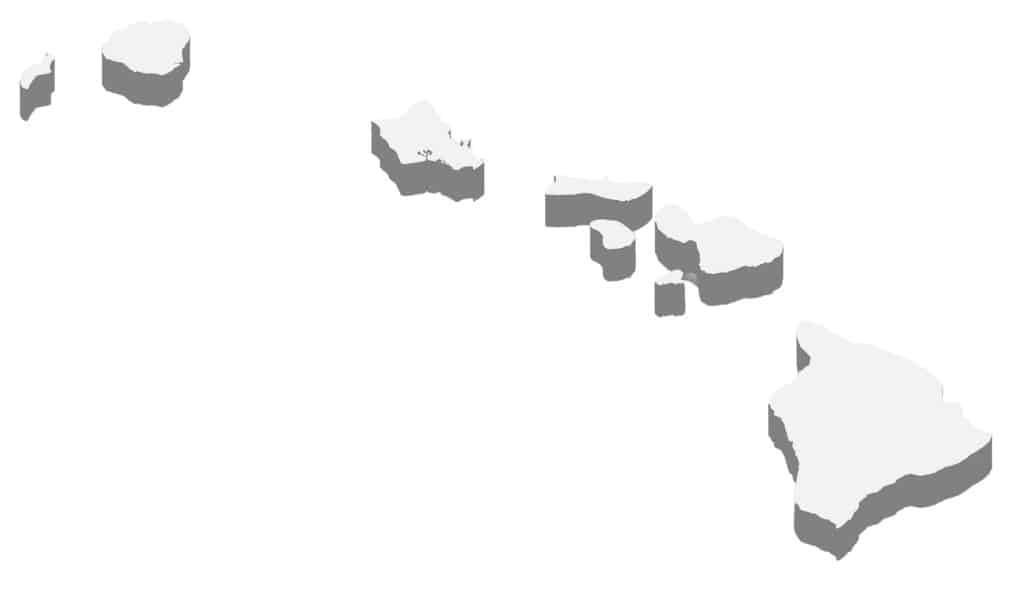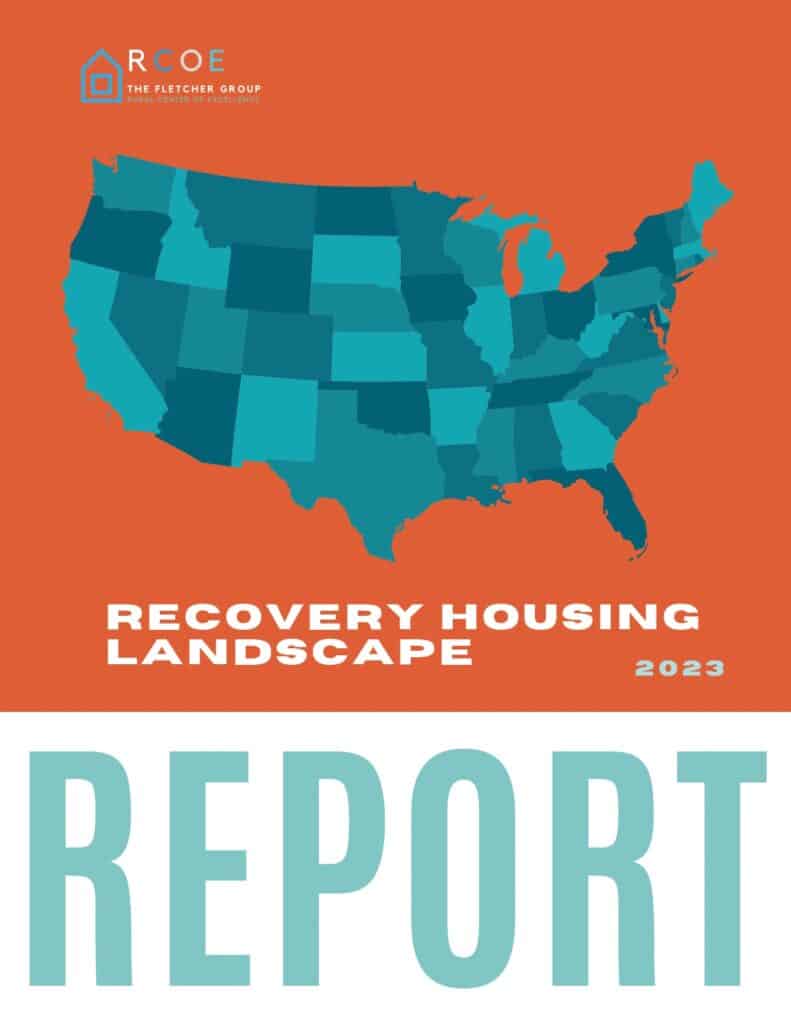
Hawaii State Laws, Policies and Funding
RH terminology used by the Hawaii State Department of Health (DOH), Alcohol and Drug Abuse Division (ADAD) uses terminology such as clean and sober housing.
Accreditation, Certification, and State Licensing Requirement: A certificate of registration is required to be listed on the state registry.
RH Law(s): Act 155 (2022) Requires the Department of Health and pertinent county agencies to work together to resolve problems and complaints regarding clean and sober homes. Requires the Department of Health to educate the public on certain matters related to clean and sober homes.
Act 193 (2014) The purpose of this Act is to help residents and prospective residents of clean and sober group homes to access a stable, alcohol- and drug-free, home like living environment in residences that comply with federal, state, and county requirements and minimum quality standards. This Act: (1) Establishes a registry for clean and sober homes within the department of health; and (2) Amends the county zoning statute to better align functions of state and county jurisdictions with federal law.
RH Legislation: None/unknown
Regulations: 11-178-1 The purpose of these rules is to establish a voluntary clean and sober homes registry to assist persons recovering from substance use disorders to have to have a safe, clean, and sober environment that supports their recovery. The registry establishes standards and procedures by which homes will be listed on the registry as described 11-178-7.
SABG Program: The “Planned Priority Areas” documents for your state’s Substance Abuse Prevention and Treatment Block Grant (SABG) program and Community Mental Health Services Block Grant (MHBG) program do not specifically mention recovery housing as a priority, nor do they list recovery support services as an allowable activity. To learn more about specific recovery housing activities that are eligible for funding through these grant programs, please reach out to your state’s Single State Agency (SSA) that’s responsible for administering these funds by visiting http://hawaii.gov/health/substance-abuse/index.html
According to WebBGAS, this state has indicated that it has established a revolving loan fund using SABG funds to develop RH for individuals in recovery.
SOR Program: Your state’s Department of Health and Social Services (DHSS) has previously funded recovery activities using State Opioid Response (SOR) funds. To learn more about specific recovery housing activities that are eligible for funding through this grant program, please reach out to your state’s Single State Agency (SSA) that’s responsible for administering these funds by visiting http://hawaii.gov/health/substance-abuse/index.html
Medicaid Funding: Nothing in the state Medicaid plan suggests direct support for RH, however, certain covered activities could evolve to be provided in RH settings include peer support and counseling.
NARR Affiliate Status: None/unknown
Housing Assistance Funding: http://www.hpha.hawaii.gov/
Directory/Registry:
CARES Network Providers https://cshome.ehawaii.gov/cshome/wf/page/welcome.html?returnUri=https%3A%2F%2Fcshome.ehawaii.gov%2Fcshome%2Fwf%2Findex.html
Clean and Sober Homes Registry https://cshome.ehawaii.gov/cshome/wf/page/welcome.html?returnUri=https%3A%2F%2Fcshome.ehawaii.gov%2Fcshome%2Fwf%2Findex.html
Hawaii Funders
Atherton Family Foundation
In 1915, Juliette M. Atherton established a charitable trust with 20 percent of the Atherton Estate, dedicated to helping the people of Hawaii. Juliette Atherton’s son, Frank C. Atherton, also established a charitable trust to support Hawaii programs. In 1975 and 1976, assets from these charitable trusts were combined to create the Atherton Family Foundation.
Regions: The Atherton Family Foundation primarily serves Hawaii, including rural counties such as= Hawaii County.
Issues Supported: The Atherton Family Foundation focuses on issue areas including arts and culture, education support, the environment, health, and youth development.
Grant Process and Application: Grant application deadlines are usually in January, April, July, and October each year. Visit the Foundation’s website to learn more about the application process.
Grant-Making Per Year: In 2019, the Atherton Family Foundation provided grants in the amount of $5 million.
Recovery and Supportive Housing Grantee Example: The Bridge House is a grantee located in Kailua Kona, in rural Hawaii County. The Bridge House offers sober living facilities for men and women, incorporating transitional living skills, Native Hawaii cultural values, and other services to facilitate healing and integration into society.
Hawaii Community Foundation
The Hawaii Community Foundation was founded in 1916 and has offices in Honolulu, Hilo, Lihue, and Kahului. The Foundation’s mission is to strengthen Hawaii’s communities.
Regions: The Hawaii Community Foundation serves the entire state, including both rural and non-rural counties.
Issues Supported: The Foundation funds several areas that contribute to thriving Hawaii communities. Examples of issue areas addressed include education, health, local arts and culture, medicine, and youth development.
Grant Process and Application: The Hawaii Community Foundation’s grant applications are submitted online. Deadlines vary depending on the grant program. Find more information about open grants and the grant application process by visiting the Foundation’s website.
Grant-Making Per Year: In 2018, the Hawaii Community Foundation provided grants in the amount of $45.5 million.
Recovery and Supportive Housing Grantee Example: Big Island Substance Abuse Council is a grantee located in Kea’au in rural Hawaii County and offers a variety of treatment options for individuals struggling with substance use disorder. Included in these services is an option to stay in a sober house, designed for individuals needing support while transitioning from an intensive treatment program into society.
Hawaii Opioid Settlement Funds
Total Settlement Funds in Hawaii
- $73 million
Fund Distribution
- 15% to the state
- 15% to counties and municipalities
- 70% to opioid abatement fund
Timeline
- Funds from three distributors will be paid over 18 years
- Funds from Johnson & Johnson will be paid over 9 years
- Payments expected to begin second quarter of 2022
Application Process
- Not established
Key Contacts
- Gary H. Yamashiroya, Special Assistant to the Attorney General, ATG.PIO@hawaii.gov
- Holly T. Shikada, Hawaii Attorney General, 808-586-1239, contact form
- Department of the Attorney General News Release
How About Your County?
To get a quick overview of the resources available in your county, including gaps that may need to be addressed, visit the Recovery Ecosystem Index Map developed through a partnership between the Fletcher Group Rural Center of Excellence, the NORC Walsh Center at the University of Chicago, and East Tennessee State University.
Need More Info?

A year in the making by a staff of ten, the Fletcher Group’s 82-page Recovery Housing Landscape Report provides an in-depth overview of the most recent laws, policies, and funding affecting recovery housing. You’ll find sections devoted to state laws, SAMHSA funding, Medicaid, corrections, and housing assistance plus numerous links to valuable resources and official documents. To see the complete downloadable report, click the image to the left.
This web page is supported by the Health Resources and Services Administration (HRSA) of the U.S. Department of Health and Human Services (HHS) as part of an award totaling $13.7 million with 0% financed with non-governmental sources. The contents are those of the author(s) and do not necessarily represent the official views of, nor an endorsement, by HRSA, HHS, or the U.S. Government.